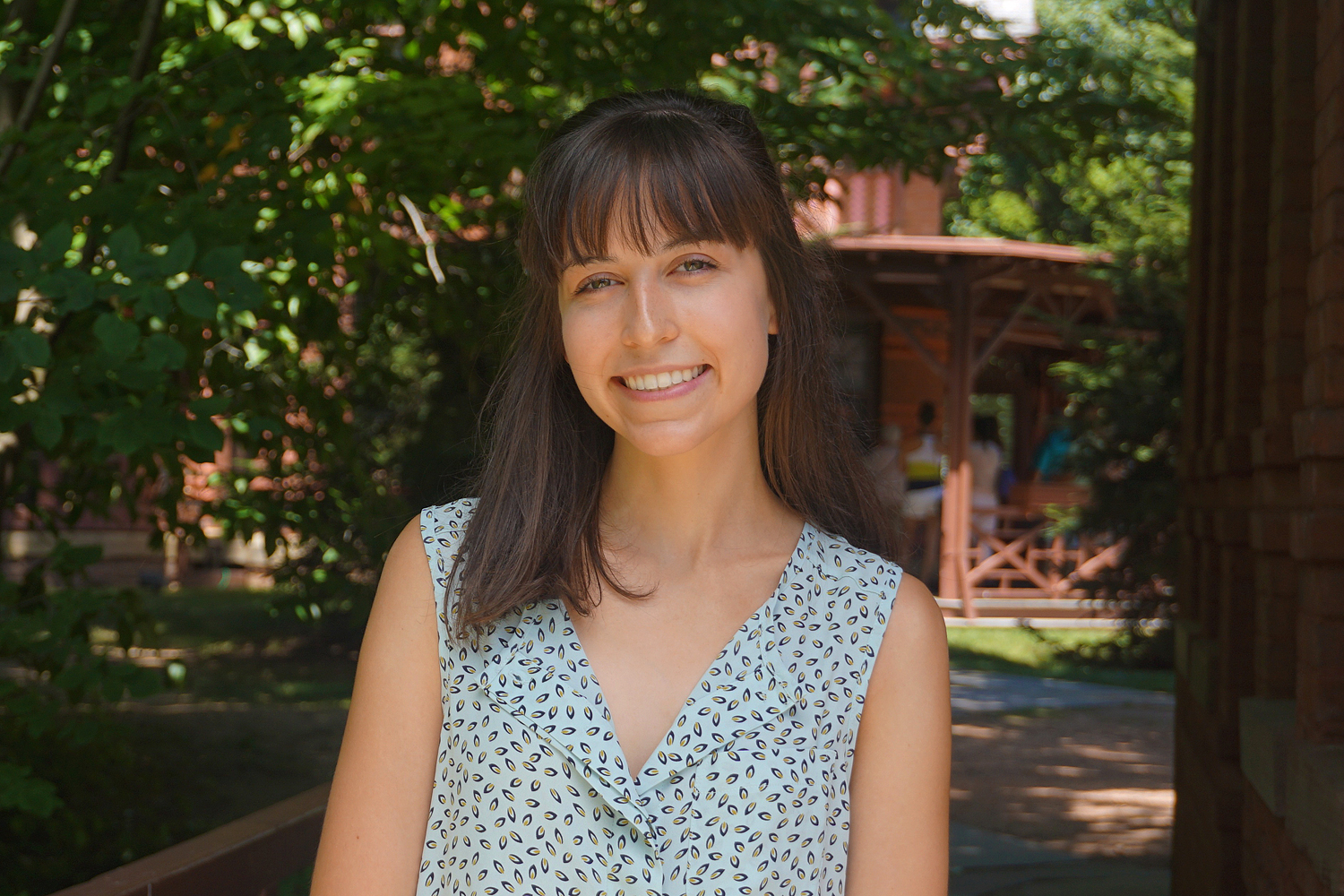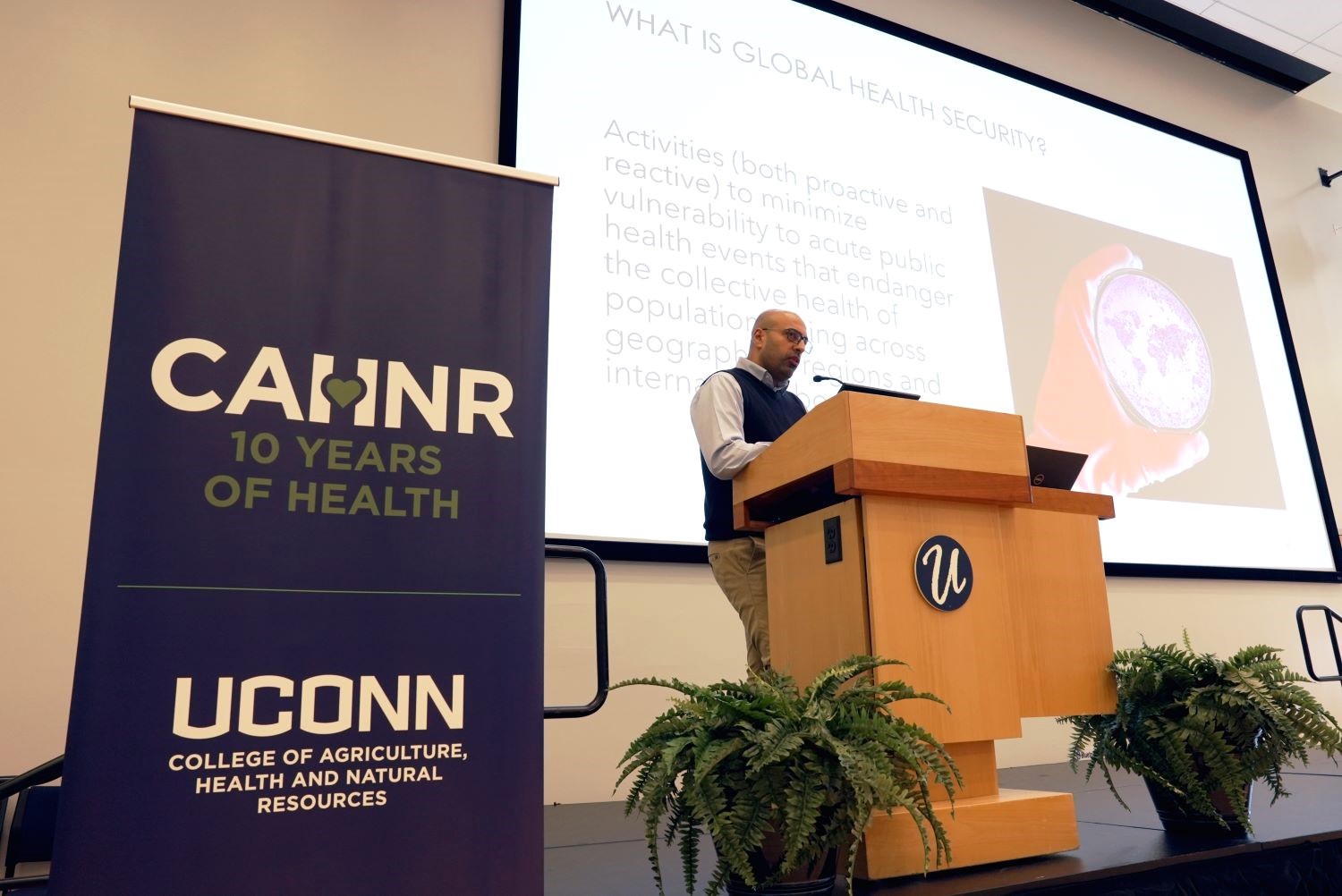At nine in the morning, when the museum is just opening and the city is stirring awake, undergraduate English and history dual-major Helen Stec arrives at the Mark Twain House for a long day of research. She checks in with her boss Dr. James Golden, the director of education at the museum, before heading up to the third floor reference library.
Although the library is small, its shelves are full of books, letters, periodicals, and other preserved documents. Stec has dug her way through countless resources to research for an educational program the Mark Twain House puts on about Victorian dinner parties and their role in society.
All this hard work was in service of her internship project, which aims to help the Mark Twain House’s education department create and facilitate educational programs. These workshops will help students to understand the historical period during which Mark Twain wrote some of his most famous novels in downtown Hartford.
“For my summer internship, I knew it’d be really cool if I could do something that combined English and history,” Stec said. “I knew I really wanted to work with texts and archival materials, so the [Mark Twain House] suggested I intern in the education department.”
Stec’s interest in the intersection of history and English began in high school, and has now become her passion as she gets ready to apply for the University Scholar program this upcoming year. After producing the news podcast “The Story of Storrs” with colleague and past news director of WHUS Charlie Smart, as well as interning at the Mansfield Historical Society and now the Mark Twain House, Stec is poised to expand her current SURF grant-funded research into a larger thesis.
Stec’s work at the Mark Twain House focuses on women during the late 19th century and particularly during the Civil War. A lot of her reading is about Mark Twain’s wife and daughters during that time period.
Sometimes Stec will tote her research materials outside next to Mark Twain’s stables where his coachmen slept. Even though the stables are now converted into administrative offices, sitting in the courtyard still feels like being transported back to a sunny day in the 1860s.
On a recent sunny afternoon, Stec flipped eagerly through a five hundred-page tome on the lawn of the Twain House. The first two weeks of her summer internship at the historic home and museum had been spent reading an in-depth biography about Mark Twain, listening to the quiet purr of traffic and murmuring voices of museum visitors, and trying to imagine late 19th century Hartford.
Large classes of high school students teem through the halls of the Mark Twain House each day, and museum staff give them primary and secondary sources to read about Victorian dinner parties. The students then barter and argue over how to replicate what one of these dinner parties would be like if Mark Twain and his wife Livy were the hosts, down to how much to spend on peas.
Since Stec began her internship, she started finding even more merit in the literature of Twain.
“I really like A Connecticut Yankee in King Arthur’s Court,” Stec said. “When you read the book and take a closer look at it it’s super dark, and you can definitely see that darkness brewing in his life as he’s writing the book. You can certainly see the start of his financial problems.”
When she’s not at the Twain House, Stec does her own independent research based on the Charlotte Davis papers, a collection of letters between two young women during the Civil War.
“I’ve noticed that a lot of [female authors] channel these feelings of powerlessness or helplessness; not only could women not fight in the war, but they had no political say either,” said Stec. “A lot of women focused the powerlessness they were feeling into writing these really powerful literary works.”
This is where history marries English for Stec. She’s fascinated by how the historical context a writer comes from impacts to their literary works, a theme she hopes to continue pursuing in a graduate program. She’d like to become a professor or enter public history to work in a museum like the Mark Twain House.
“I like public history and being able to get other people to see how interesting [history] can be,” she said. “I want to show them, like my teachers showed me, that its not just about memorizing facts.”



